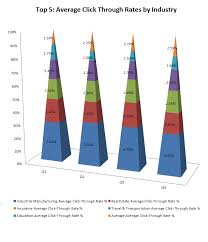Buffett Uses This Simple Strategy to Boost Returns by 10%

Among Warren Buffett’s biggest winners is Coca-Cola (NYSE: KO). Buffett owns 400 million shares of KO and paid an average price of less than $ 3.25 a share. Today, that stake in KO is worth about $ 18 billion, which means Buffett has made nearly 1,200% on his investment.
Buffett obviously made a great decision when he bought KO. But he still fought to get the best price possible on his buy. In at least one case, Buffett sold puts to help him get the share price he wanted.
In 1993, Buffett wanted to buy KO, but at a price that was about 10% below the market price. Rather than overpay, he sold put options at the price he wanted to pay and pocketed nearly $ 7.5 million in income while he waited for a price correction.
The good news is any investor can sell puts to bring in income after they find a stock they’d like to buy. To understand the idea, we can look at what Buffett did in a little more detail.
KO was selling for about $ 39 a share in the spring of 1993, and Buffett wanted to buy about 5 million shares. Based on his analysis, he was only willing to pay $ 35 a share. Selling put options allowed him to do just that. He created an obligation to buy 5 million shares at $ 35, and he was paid $ 1.50 per share for promising to buy KO later at that price.
Put options give the buyer the right to sell 100 shares of stock at a predetermined price — known as an “exercise price” or “strike price” — anytime until the expiration date of the options contract. The investor selling the put promises to buy the shares if the buyer of the put exercises their right to sell the stock. Put options are only exercised when the stock price is in the money, i.e., below the exercise price.
In exchange for their promise to buy the stock later for more than the market price, put sellers are paid a premium by the put buyer. For Buffett, this premium amounted to $ 1.50 a share for KO. If the option is not exercised, the seller keeps the premium and earns that amount as a profit on the trade. If the option is exercised, the premium reduces the cost basis. If Buffett was forced to buy KO at $ 35, his cost would actually be $ 33.50 a share when the premium is considered.
This strategy can be used with any stock that has options available, which generally includes all large-cap stocks, many mid-cap stocks and a number of ETFs.
How Traders Use It
Traders can use puts to enter long-term positions in stocks. The put premium allows them to generate income while they are waiting for a pullback in a stock they want to own. If the put is exercised, they will be buyers at a price they believe represents a fair value for the stock.
Traders can also sell puts as an income strategy. With this approach, they repeatedly sell short-term puts that will expire in less than three months and have a low probability of being exercised. When an option expires worthless, the seller keeps the premium as their profit. Options pricing models can be used to determine the probability of exercise.
Why It Matters To Traders
Selling puts can be a way to build a long-term portfolio of value stocks without overpaying. When the put is sold, you are setting a maximum price limit for your purchase. It is like buying on a limit order except that you are paid to wait for your order to be filled. With this strategy, you will only buy during pullbacks. Buying at a lower price and generating income from options premiums could lead to returns that are 5%-10% higher on positions than you would obtain by always buying at the market price.
Selling puts can also be a very effective income strategy. Most puts expire worthless, and the seller profits when that happens. It is possible to generate income of 10% or more with this strategy. Aggressive traders can use full margin to increase those returns by up to five times.

